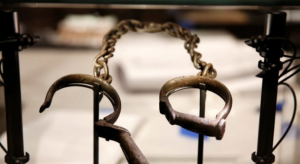The history of slavery in the United States justifies reparations for African Americans, argues a recent report by a U.N.-affiliated group based in Geneva.
This conclusion was part of a study by the United Nations’ Working Group of Experts on People of African Descent, a body that reports to the international organization’s High Commissioner on Human Rights. The group of experts, which includes leading human rights lawyers from around the world, presented its findings to the United Nations Human Rights Council on Monday, pointing to the continuing link between present injustices and the dark chapters of American history.
“In particular, the legacy of colonial history, enslavement, racial subordination and segregation, racial terrorism and racial inequality in the United States remains a serious challenge, as there has been no real commitment to reparations and to truth and reconciliation for people of African descent,” the report stated. “Contemporary police killings and the trauma that they create are reminiscent of the past racial terror of lynching.”
The panel drew its recommendations, which are nonbinding and unlikely to influence Washington, after a fact-finding mission in the United States in January 2016. At the time, it hailed the strides taken to make the American criminal justice system more equitable but pointed to the corrosive legacy of the past.
In its report, it specifically dwells on the extrajudicial murders that were a product of an era of white supremacy:
Lynching was a form of racial terrorism that has contributed to a legacy of racial inequality that the United States must address. Thousands of people of African descent were killed in violent public acts of racial control and domination and the perpetrators were never held accountable.
The reparations could come in a variety of forms, according to the panel, including “a formal apology, health initiatives, educational opportunities … psychological rehabilitation, technology transfer and financial support, and debt cancellation.”
by: Ishaan Tharoor
source: washingtonpost.com
Ask me anything
Explore related questions





